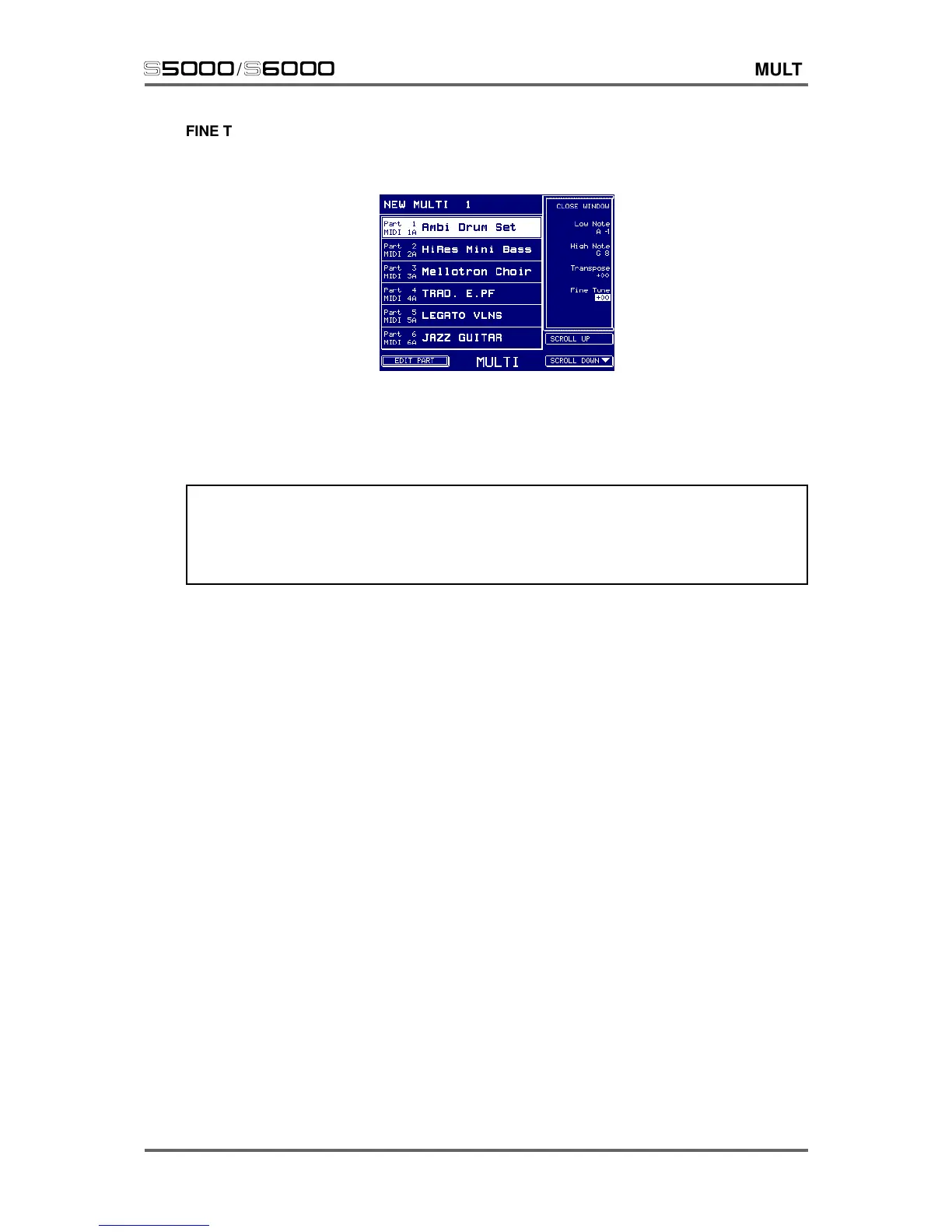Version 1.21 49
s5000
/
s6000
MULTI
FINE TUNE WINDOW
FINE TUNE This is a duplication of the main FINE TUNE function.
TRANSPOSE This allows you to tune the part in semi-tone steps.
NOTE: You will note that the TRANSPOSE parameter is not a pitch shift function but a MIDI
transpose function - this overcomes the problem of playing back samples out of their range.
What this function does is introduce an offset so that with a +12 setting, if you play C3 on the
keyboard, this is offset to play the samples on C4 - it is not playing the samples on C3 an
octave higher and hence introducing transposition distortion of any kind.
LOW NOTE/HIGH NOTE This sets the low and notes for a part allowing you to create
keysplits. To create a keysplit, you would normally assign two
programs to two parts, assign them to the same MIDI channel
and then set an appropriate keysplit (i.e. Part 1: C0-B2 and Part
2: C3-G8).
All windows are closed either by pressing CLOSE WINDOW (F9) or by pressing the WINDOW key
again.
